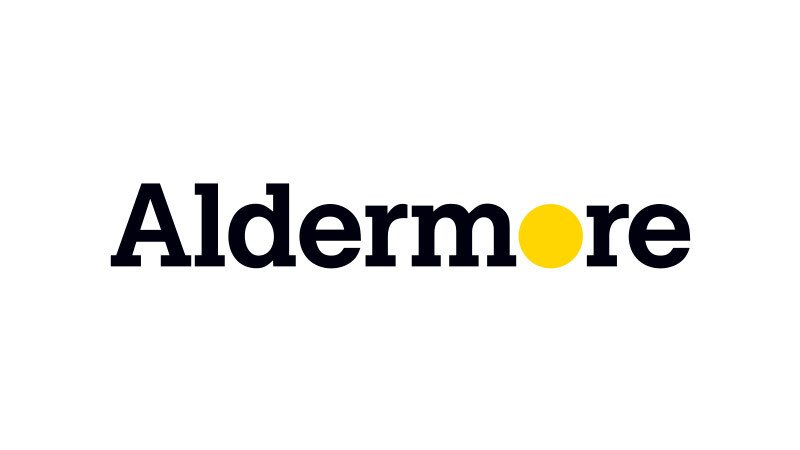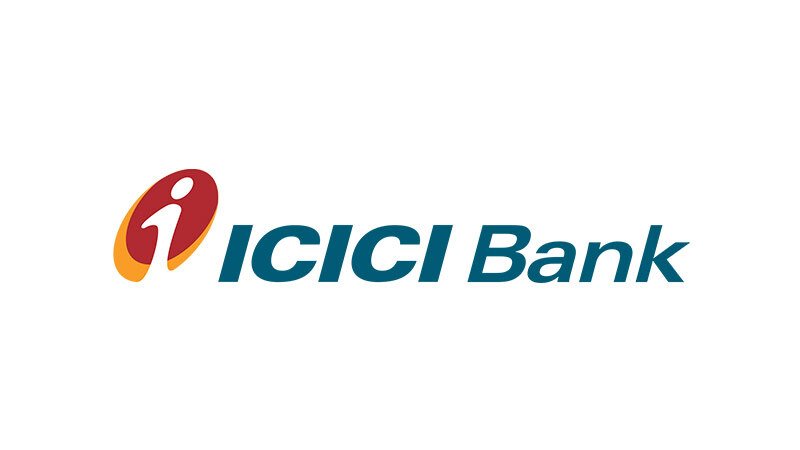| My favourite pages |


| Support topics
Need help in something? Take a look at our support area for your answer. Find out more |
Session Timeout
You have been inactive for 0 mins.
Stay logged in or you will be logged off in 60 seconds.
Quick content survey
As your feedback helps us improve our content and services, we'd appreciate it if you can spare a few moments to respond to the following statements.
Cash interest explained |
You will receive interest on balances in your platform cash account at the prevailing rate.
Embark Investment Services Limited acts as the custodian for investments on the Willis Owen platform and is one of our strategic partners that provides our Willis Owen ISA, GIA, Junior ISA and SIPP.
Embark places cash with a number of banking partners for safekeeping and to provide the potential for you to earn interest on money in your platform cash account. By managing cash in this way, it aims to provide better protection and a higher overall level of interest than if all funds were placed with a single bank.
The rates of interest paid by banks will vary. Embark retains a portion of the interest earned to cover its costs in managing platform cash.
Current Interest Rate
The table below shows the current customer interest rate payable on cash balances along with the amount of interest retained by Embark. The customer interest rate shown is that after accounting for interest retained by Embark:
| Date From | Customer Interest Rate | Interest retained by Embark |
|---|---|---|
| 18th August 2025 | 1.85% | 1.65% - 1.90% |
Embark can change the rate of interest at any time and it reviews the position at least quarterly. Interest is calculated and accrued daily and is credited to your account on the first of each month. If you transfer out, accrued interest is applied at the point of transfer. We will inform you if and when the interest rate changes as soon as is practicable.
Interest retained
The table below shows the yearly equivalent rates of interest Embark expects to pay based on a range of possible yearly interest rates it may earn.
| Interest Embark expects to earn | Customer Interest Rate | Interest retained by Embark |
|---|---|---|
| 0-1% | 0 – 0.46% | 0 – 0.54% |
| 1-2% | 0.46% – 0.94% | 0.54% – 1.06% |
| 2-3% | 0.94% – 1.46% | 1.06% – 1.54% |
| 3-4% | 1.46% – 2.02% | 1.54% – 1.98% |
| 4-5% | 2.02% – 2.61% | 1.98% – 2.39% |
| 5%+ | 2.61%+ | 2.39%+ |
Historic Interest Rates
To see details of historic customer interest rates, along with the amount of interest retained by Embark, click here.
Equity Styles Explained |
Market capitalisation is an indication of the size of the companies being invested in. It is calculated by multiplying the number of shares issued by the company by the current share price. Market capitalisation is divided into ‘large’, ‘medium’ or ‘small’ according to the below:
Large – Companies that have a market capitalisation greater than $10 billion.
Medium – Companies that have a market capitalisation between $2 billion and $10 billion.
Small – Companies that have a market capitalisation below $2 billion.
Companies can be categorised as ‘value’, ‘blend’ or ‘growth’ as defined below:
Value – Companies that are considered to be trading at a share price below what their fundamentals would suggest.
Blend – Companies that do not exhibit solely value or growth characteristics.
Growth – Typically well-established companies which are considered to have above average prospects for long-term growth.
Equity Regions Explained |
Equity region indicates in which countries the underlying shares within your portfolio are listed.
USA – Companies listed on a stock market in the USA.Canada – Companies listed on a stock market in Canada.
Latin America – Companies listed on stock markets in the Caribbean, Central America and South America, such as Mexico, Brazil and Argentina.
United Kingdom – Companies listed on a stock market in the United Kingdom, Guernsey, Isle of Man and Jersey.
Eurozone – Companies listed on stock markets in countries which have the Euro as their official currency, such as France, Germany and Spain.
Europe ex Eurozone – Companies listed on stock markets in western European countries which do not have the Euro as their official currency, such as Denmark, Sweden and Switzerland.
Europe Emerging – Companies listed on stock markets in European emerging markets, such as Poland, Russia and Turkey.
Africa – Companies listed on stock markets in African countries, such as Egypt, Nigeria and South Africa.
Middle East – Companies listed on stock markets in Middle Eastern countries, such as Israel, Qatar and Saudi Arabia.
Japan – Companies listed on a stock market in Japan.
Australasia – Companies listed on stock markets in Australia and New Zealand.
Asia Developed – Companies listed on stock markets in developed Asian countries, such as Hong Kong, Singapore and Taiwan.
Asia Emerging – Companies listed on stock markets in emerging Asian countries, such as China, India and Thailand.
Equity Sectors Explained |
Cyclical – Companies which operate in industries that are considered to be significantly affected by economic shifts. When the economy is prosperous, these industries tend to expand and when the economy is in a downturn they tend to shrink.
Basic Materials - Companies that manufacture chemicals, building materials and paper products. This sector also includes companies engaged in commodities exploration and processing.
Consumer Cyclical - This sector includes retail stores, auto and auto-parts manufacturers, restaurants, lodging facilities, specialty retail and travel companies.
Financial Services - Companies that provide financial services include banks, savings and loans, asset management companies, credit services, investment brokerage firms and insurance companies.
Real Estate - This sector includes companies that develop, acquire, manage and operate real estate properties.
Sensitive – Companies that operate in industries that ebb and flow with the overall economy, but not severely. Sensitive industries fall between defensive and cyclical, as they are not immune to a poor economy, but they also may not be as severely affected as cyclicals.
Communication Services - Companies that provide communication services using fixed-line networks or those that provide wireless access and services. Also includes companies that provide advertising & marketing services, entertainment content and services, as well as interactive media and content provider over internet or through software.
Energy - Companies that produce or refine oil and gas, oilfield-services and equipment companies and pipeline operators. This sector also includes companies that mine thermal coal and Uranium.
Industrials - Companies that manufacture machinery, hand-held tools and industrial products. This sector also includes aerospace and defence firms as well as companies engaged in transportation services.
Technology - Companies engaged in the design, development and support of computer operating systems and applications. This sector also includes companies that make computer equipment, data storage products, networking products, semiconductors and components.
Defensive – Companies which operate in industries that are relatively immune from economic shifts. These industries provide services that consumers require in both good and bad times.
Consumer Defensive – Companies that manufacture food, beverages, household and personal products, packaging, or tobacco. Also includes companies that provide services such as education and training services.
Healthcare – This sector includes biotechnology, pharmaceuticals, research services, home healthcare, hospitals, long-term-care facilities and medical equipment and supplies. Also includes pharmaceutical retailers and companies which provide health information services.
Utilities - Electric, gas and water utilities.
Product Involvement Explained |
Product Involvement metrics measure the percentage of a portfolio's assets exposed to a range of business areas and activities. For example, if a fund's involvement in Animal Testing is 20%, that means 20% of the fund's assets are invested in companies involved in Animal Testing.
Exposure percentages are calculated by summing the weights of a portfolio’s holdings in the companies involved in each area. In most cases a company is considered ‘involved’ in a certain area if it's revenue from that area exceeds a certain minimum threshold. In other areas, for example animal testing, abortion, contraceptives and human embryonic stem cell research, there is no revenue threshold such that if the company has any involvement at all in these areas, it will be considered involved. If a company is considered involved in an area, the entire weight of that company in a portfolio is counted when determining the overall percentages shown.
|
|
ESG Pillars Explained |
Morningstar's ESG Pillar Scores help investors understand how a fund is performing in three key areas: Environmental (E), Social (S), and Governance (G). These scores break down the overall sustainability risk of a portfolio into these specific categories.
Each score reflects how much environmental, social, and governance factors contribute to the overall risk of companies in the fund. The scores are averaged based on the size of each company in the portfolio. Lower scores mean lower risk.
To receive these scores, at least 67% of the fund’s assets must be rated for their ESG risk. This provides investors with a clearer view of a fund’s exposure to sustainability risks in different areas.
Asset Allocation Explained |
Equity – Often referred to as shares. Shares are units of ownership in a company which entitle the holder to certain rights for example to exercise voting rights or to participate in the company’s profits.
Fixed Income – Often referred to as fixed interest or bonds. When you invest in bonds, you are typically lending money to a company or a government in return for a defined series of interest payments and the promise that a defined value (called the ‘face’ or ‘par’ value) will be returned at a certain point in time
Property – Investments in property include residential, offices, warehouses and shopping centres.
Cash – Money held in cash or cash-like instruments, often to ensure there are sufficient liquid assets within a portfolio.
Other – Contains other investments such as commodities, preferred stock and derivatives.

|
Ready to save smarter?
Choose a competitive product from one of our partner banks Discover our latest rates |
Find out more below about the banks whose products we make available through the Smart Savings marketplace.
| Bank | Country | Deposit Protection | Details |
|---|---|---|---|
Aldermore Bank Plc

|
United Kingdom | FSCS Max £85,000 |
Aldermore Group PLC is a specialist bank offering straightforward products to Small and Medium-sized Enterprises (SMEs), homeowners, landlords and individuals. Aldermore has no branch network but serves customers and intermediary partners online, by phone and face to face through its network of regional offices located around the UK.Building on its core values of being reliable, expert, dynamic and straightforward,Aldermore aims to deliver banking as it should be. Established in 2009, Aldermore has grown significantly.At the end of December 2018, lending to customers stood at £9.4bn.In March 2018, Aldermore became part of FirstRand Group, South Africa’s largest financial services institutions by market capitalisation. |
Brown Shipley

|
United Kingdom | FSCS Max £85,000 |
Founded in 1810, Brown Shipley is a UK authorised private bank with over 200 years of experience, and is regulated by both the PRA and FCA. Brown Shipley is headquartered in London with offices in seven other UK cities, offering fully integrated wealth planning, investment management and banking services. Brown Shipley is owned by Quintet Private Bank, and is part of a group of boutique private banks and wealth managers operating across over 50 European cities.Being part of Quintet expands their scale and security and adds a truly global outlook to already strong foundations. All eligible deposits made into Brown Shipley bank accounts are protected by the FSCS up to a total of £85,000 per individual. |
FCMB Bank UK Limited
_Transparent_version.png)
|
United Kingdom | FSCS Max £85,000 |
FCMB Bank (UK) Limited, is a UK Bank authorised by the PRA and regulated by the FCA and the PRA.FCMB (UK) Limited is an independently incorporated, wholly-owned subsidiary of First City Monument bank Ltd, a member of the FCMB Group PLC, a leading financial services group based in Nigeria. In 2013 FCMB Bank(UK) Limited commenced wholesale deposit taking activities, offering a wide range of products including foreign exchange, treasury and corporate banking.In 2018, FCMB Bank (UK) Limited expanded its proposition to include Personal and Business Banking. FCMB Bank (UK) Limited focus is to achieve high levels of customer satisfaction whilst delivering a sustainable, profitable business with integrity, honesty and respect. |
Gatehouse Bank Plc

|
United Kingdom | FSCS Max £85,000 |
Gatehouse Bank, formerly Milestone Savings, is a new ethical Sharia-compliant challenger bank that was authorised by the Financial Conduct Authority and the Prudential Regulation Authority. Gatehouse Bank adheres to a strict ethical code of Sharia banking principles, and subsequently, they won’t invest in gambling, alcohol, tobacco or arms.Instead, they support projects with less ethical concerns, such as property and real estate projects across the UK. The principles of Sharia banking prohibit excessive uncertainty, gambling and speculation, and as the Financial Services Compensation Scheme protects savings products offered by Gatehouse Bank, you can rest assured that your capital is secure. |
Hampshire Trust Bank Plc

|
United Kingdom | FSCS Max £85,000 |
Hampshire Trust Bank (HTB) is a privately owned British bank that provides award-winning savings services.HTB also specialises in finance solutions for British businesses through specialist mortgages, business finance and development finance products. The FSCS protects deposits made into savings accounts offered by Hampshire Trust Bank Plc through our marketplace, and Hampshire Trust Bank Plc is authorised by the Prudential Regulation Authority and regulated by the Financial Conduct Authority and the Prudential Regulation Authority. |
ICICI Bank UK Plc

|
United Kingdom | FSCS Max £85,000 |
ICICI Bank UK plc was established in the UK in 2003 and offers a range of personal, business, corporate and investment banking services in the UK and Europe.The bank is a subsidiary of ICICI Bank Limited, which has over 60 years of experience in finance and a presence in 17 countries. |
Kuwait Finance House PLC

|
United Kingdom | FSCS Max £85,000 |
Kuwait Finance House (KFH) is considered a pioneer in the banking phenomenon known as Islamic Finance or Shari’a Compliant Banking.KFH is the first Islamic bank established in 1977 in the State of Kuwait and today it’s one of the foremost Islamic financial institutions in the world. Today, its range of British banking services include Private Banking, Wealth Management, Residential Property Finance, Commercial Property Finance and Premium Banking services.Deposits made into savings accounts offered by Kuwait Finance House PLC through the platform are protected by the Financial Services Compensation Scheme (FSCS) up to £85,000 per person, per banking group. |
OakNorth Bank plc

|
United Kingdom | FSCS Max £85,000 |
OakNorth Bank is the UK bank powered by OakNorth, the next-generation credit platform. The bank obtained its license in March 2015 and offers a range of products to individuals (savings accounts and mortgages) and small and medium-sizes businesses (savings accounts and loans from £0.5m to £45m). To date, the bank has lent almost £4bn to small and medium-sized businesses, directly helping with the creation of tens of thousands of new homes and jobs across the UK. Its UK-based customer services team have helped the bank achieve a Feefo rating of 4.5-stars and win numerous awards for its savings products. |
Paragon Bank plc

|
United Kingdom | FSCS Max £85,000 |
Paragon Bank PLC is a subsidiary of the Paragon Banking group PLC which is a FTSE 250 company based in Solihull in the West Midlands.Established in 1985, Paragon Banking Group PLC has over £13 billion assets under management and manages over 450,000 customer accounts. |
QIB

|
United Kingdom | FSCS Max £85,000 |
Headquartered in London, QIB (UK) Plc provides private banking services and structured real estate financing in the UK, as well as a range of personal savings products, and has been fully authorised by the Prudential Regulation Authority and regulated by the FCA and PRA. The Financial Services Compensation Scheme (FSCS), the UK’s statutory deposit guarantee scheme, protects all eligible deposits offered by QIB (UK) Plc through the savings marketplace. |
Shawbrook

|
United Kingdom | FSCS Max £85,000 |
Founded in 2011, Shawbrook is a purpose-led organisation, with a focus on delivering long-term sustainable value for stakeholders.We have a diversified offering, with our innovative lending propositions tailored to meet specific customer needs in carefully selected markets across SME, Real Estate and Personal.We fuel our lending through customer deposits, which we attract by delivering a premium experience, choice and consistently great value to smart savers.Shawbrook Bank Limited is an operating entity of Shawbrook Group plc.Shawbrook Bank Limited is authorised by the Prudential Regulation Authority and regulated by the Financial Conduct Authority and the Prudential Regulation Authority and is a member of the Financial Services Compensation Scheme. |
Teachers Building Society

|
United Kingdom | FSCS Max £85,000 |
Teachers Building Society was founded in 1966 by the National Union of Teachers (now the National Education Union) to help teachers and other education professionals onto the property ladder and provide a safe haven for their savings.Today, the Teachers Building Society offers a wide range of mortgage options to teaching professionals as well as a variety of competitive savings options which are available to all. As a mutual organisation, Teachers Building Society is run solely for the benefit of their members, rather than shareholders.This means that instead of paying dividends to shareholders, they invest their profits back into the products and services they offer, ensuring that their mortgage and savings rates are as competitive as possible. The FSCS protects deposits made into savings accounts offered by Teachers Building Society through our marketplace, and Teachers Building Society is authorised by the Prudential Regulation Authority and regulated by the Financial Conduct Authority. |